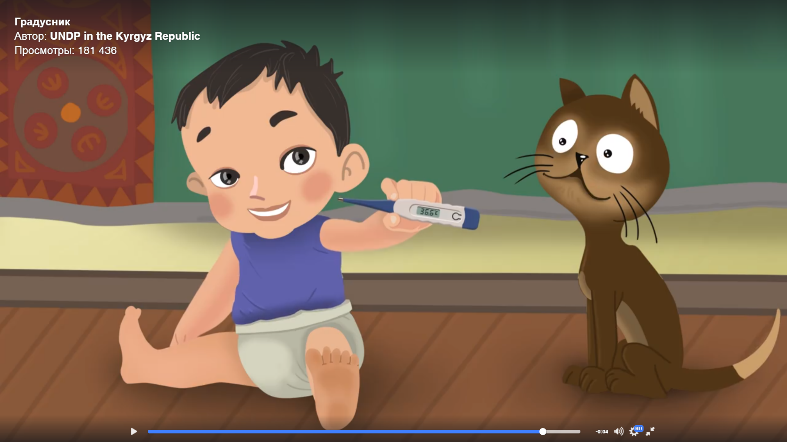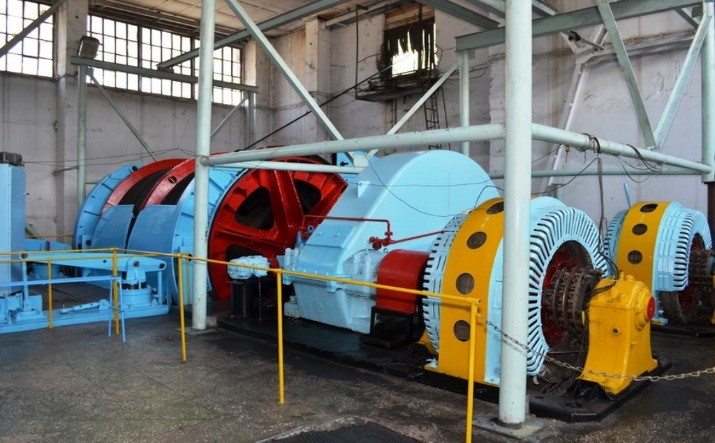News block
Mercury free Kyrgyzstan
In our ordinary life, we can meet with goods that containing mercury such as thermometers, energy-saving bulbs, some medical equipment. Sometimes these goods break, especially thermometers, and mercury emitted. Emission of mercury may seriously damage our health if we do not take away liquid mercury in right way.
Does everybody surely know how to deal with a broken mercury thermometer? This was a question when UNDP Kyrgyzstan posted the animated video “Do you know what to do when your mercury thermometer breaks?” at its Facebook page https://www.facebook.com/undpkg/videos/vb.116487388447179/905012559594654/?type=2&theater
 Over 180 thousand of people living in Kyrgyzstan and other Central Asian countries viewed the video. Now they know how to collect properly the broken thermometer but they asked us a question “How to utilize the collected mercury?”
Over 180 thousand of people living in Kyrgyzstan and other Central Asian countries viewed the video. Now they know how to collect properly the broken thermometer but they asked us a question “How to utilize the collected mercury?”
Well, this was a very good question! It inspired the team of the UNDP-GEF Project “Protect human health and the environment from unintended releases of POPs and mercury from the unsound disposal of healthcare waste in Kyrgyzstan” to find a solution. Initially, the Project aimed to free pilot healthcare facilities from 1300 mercury thermometers by replacing them with 3000 mercury-free alternatives. Withdrawn thermometers are properly packaged, labeled and delivered to the interim storage equipped with necessary personal protective equipment and emergency demercurization kit.
 Responding to feedback of Facebook’s users the UNDP-GEF Project together with Kyrgyzstan Ministry of Health conducted lengthy talks with Khaidarkan Mercury JSC, the only mercury-processing plant in Central Asia. As the result, 1300 mercury thermometers will be recycled at Khaidarkan Mercury Combine. This is the first step towards of mercury free Kyrgyzstan. We believe the proposed scheme of mercury thermometers disposal can be applied for recycling of other mercury containing goods not only in Kyrgyzstan but also in other Central Asian States.
Responding to feedback of Facebook’s users the UNDP-GEF Project together with Kyrgyzstan Ministry of Health conducted lengthy talks with Khaidarkan Mercury JSC, the only mercury-processing plant in Central Asia. As the result, 1300 mercury thermometers will be recycled at Khaidarkan Mercury Combine. This is the first step towards of mercury free Kyrgyzstan. We believe the proposed scheme of mercury thermometers disposal can be applied for recycling of other mercury containing goods not only in Kyrgyzstan but also in other Central Asian States.
Zhyldyz Uzakbaeva, Coordinator of UNDP-GEF “Protect human health and the environment from unintended releases of POPs and mercury from the unsound disposal of healthcare waste in Kyrgyzstan”